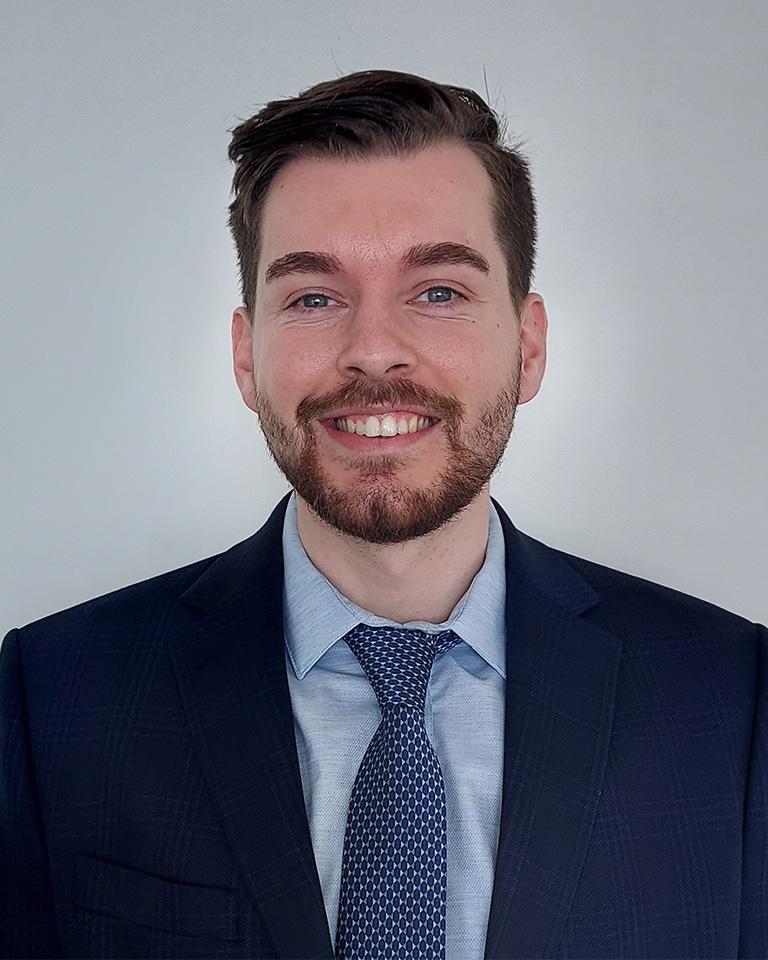Mark Craven

November 2022 Mentor Spotlight
Department: Pharmaceutical Chemistry
Describe your work in a few sentences that we can all understand: My research focuses on developing immunotherapeutic antibodies to combat cancer. Cancer cells survive in the body by inhibiting the immune system that is designed to kill them. The goal of my antibodies is to take the brakes off the immune system so that it can work harder to eliminate the cancer. This form of therapy is beneficial as it is more targeted than common cancer treatments such as chemo/radiotherapy, leading to fewer adverse side effects for the patient.
Questions:
Q: What does your research look like on a day-to-day basis? What do you spend most of your time doing?
A: I work in the lab with a biology focus. I usually culture cells to test compounds, purify proteins and antibodies, and perform immunoassays using different antibodies to find the most effective ones.
Q: How did you first get interested in doing research or creative work?
A: In my 3rd Year of undergraduate studies at Dublin City University in Ireland, I took part in an exchange program with KU. I worked in the Department of Chemistry with the Bowman-James Lab for the Summer and learned that I really enjoyed research. This was further cemented through doing research on cancer drugs at DCU the following year. After I graduated, I was able to use my connections that I built at KU to help me become a PhD candidate in the Forrest Lab in the Department of Pharmaceutical Chemistry. I decided to do research that had more of a biological focus as it presented a new challenge and biologics were becoming more popular in the drug market. I have been very happy with my decision since then and have been really enjoying my time at KU!
Q: What do students in your discipline learn by doing research that they wouldn’t learn by just taking classes?
A: Students in my discipline learn a wide breadth of skills by doing research. Firstly, collaboration and communication between your advisor, lab-mates, and other labs is a very important skill that you develop quickly. It is unlikely that you work in a lab which has everything you need, so you have to reach out and work with a variety of different people to help get your work done. You will also greatly enhance your problem solving skills as there is usually something that will go wrong when you are replicating a seemingly textbook experiment! Finally, you get experience in a variety of different experimental techniques that you may have never learned about before. As you follow the pathway of your research, there is usually an opportunity to learn a new technique or instrument. Classroom experiments are usually very rigid compared to a research lab environment.
Q: For many students, doing research or a larger creative project is the first time they have done work that routinely involves setbacks and the need to troubleshoot problems. Can you tell us about a time that your research didn’t go as expected? Or about any tricks or habits that you’ve developed to help you stay resilient in the face of obstacles?
A: Things going unexpectedly is a normal part of research. This has happened to me before where a seemingly simple method has required weeks of troubleshooting. It was important to internalise early that research is not easy and will usually fail along the way since you are trying to find out something new. Being able to recognise this made it a lot easier to analyse problems with a clearer head. My usual methods of troubleshooting involve talking to peers and my advisor, and going through the literature to ensure the fundamentals of my experiment make sense from the ground up.
Q: How do you spend your time outside of work?
A: My favourite hobby to do when I'm outside of work is to go rock climbing. I usually go 2-3 times per week to local climbing gyms in Lawrence and Kansas City. Now that I have a bit more free time, I also hope to go climbing outdoors again! It is a hobby I would highly recommend people try, especially since you can go for free as a student to the rock wall in Ambler! Other than this, the rest of my free time is usually spent with my fiancée and friends, cooking/baking a new dish, or playing video games.